CHERISH Conference on Substance Use Disorder Treatment Research
Experts From Across Country Gather at LDI to Address Current Gaps in Evidence-Based Practice and Policy
This article was produced in conjunction with the University of Pennsylvania Leonard Davis Institute.
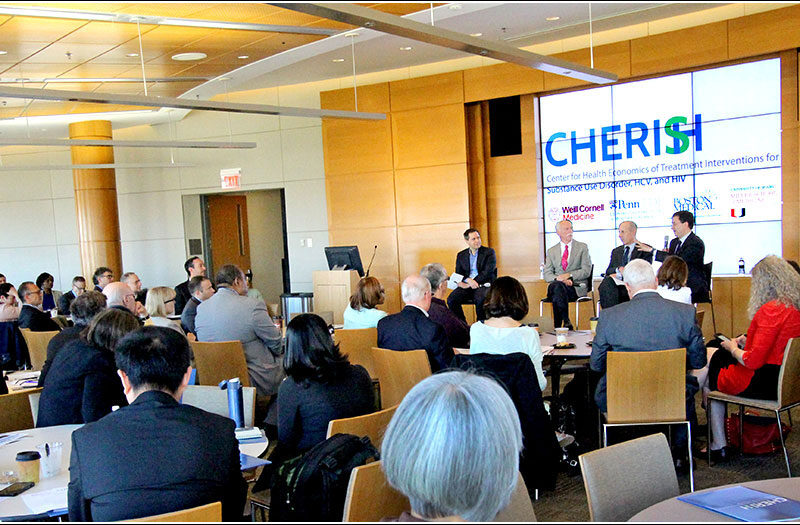
In the opening plenary panel of the CHERISH (Center for Health Economics of Treatment Interventions for Substance Use Disorder, HCV and HIV) conference on evidence-based policy and practice are (l to r) Daniel Polsky, PhD, moderator and Executive Director of the University of Pennsylvania’s Leonard Davis Institute of Health Economics (LDI); Tom McLellan, PhD, Chairman of the Board and Founder of the Treatment Research Institute (TRI) and former Deputy Director of the White House Office of National Drug Control Policy (ONDCP); Richard Frank, PhD, Harvard Medical School health economist and former Deputy Assistant Secretary at the Department of Health & Human Services; and Joshua Sharfstein, MD, Associate Dean for Public Health Practice & Training at Johns Hopkins School of Public Health and former Principal Deputy Commissioner of the U.S. Food and Drug Administration. The June 9th event was held at LDI on the Penn campus.
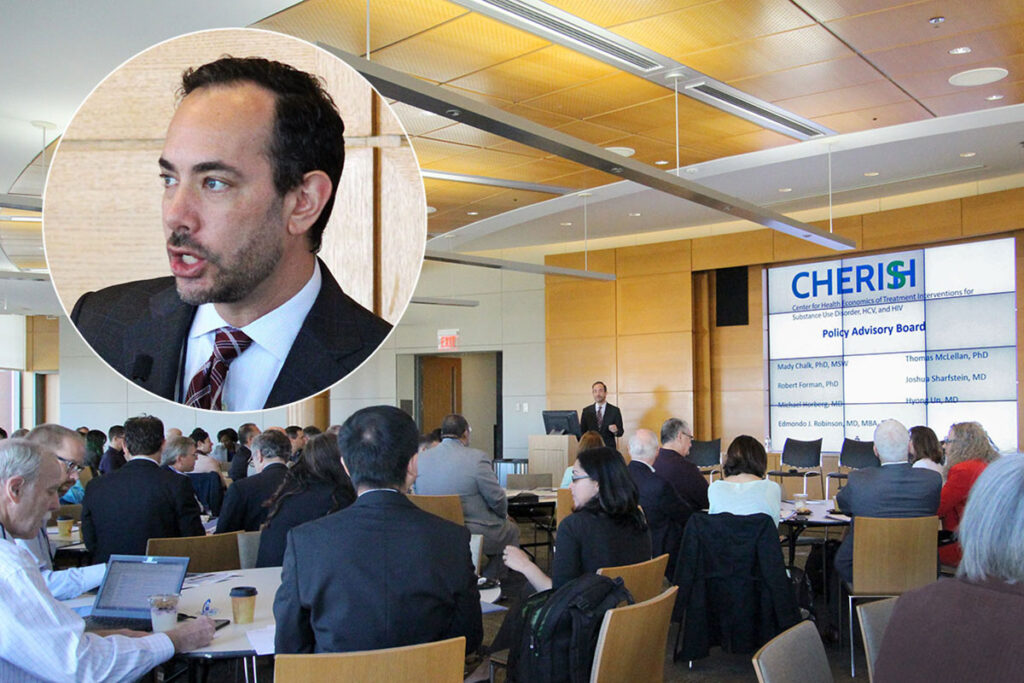
Launched in the summer of 2015, CHERISH is headquartered at Cornell University’s Weill Cornell Medical College and funded by a five year grant from the National Institute on Drug Abuse. Scientists from four academic institutions — Weill Cornell, LDI at Penn, Boston Medical Center and the University of Miami Medical Center — are participating in the collaborative five-year project. Above, the conference focused on gaps in evidence-based policy and practice was kicked off with remarks from (above) Penn Medicine’s Zachary Meisel, MD, MPH, who heads the CHERISH Policy and Dissemination Core, and (bottom) Weill Cornell’s Bruce Schackman, PhD, MBA, Director of CHERISH.
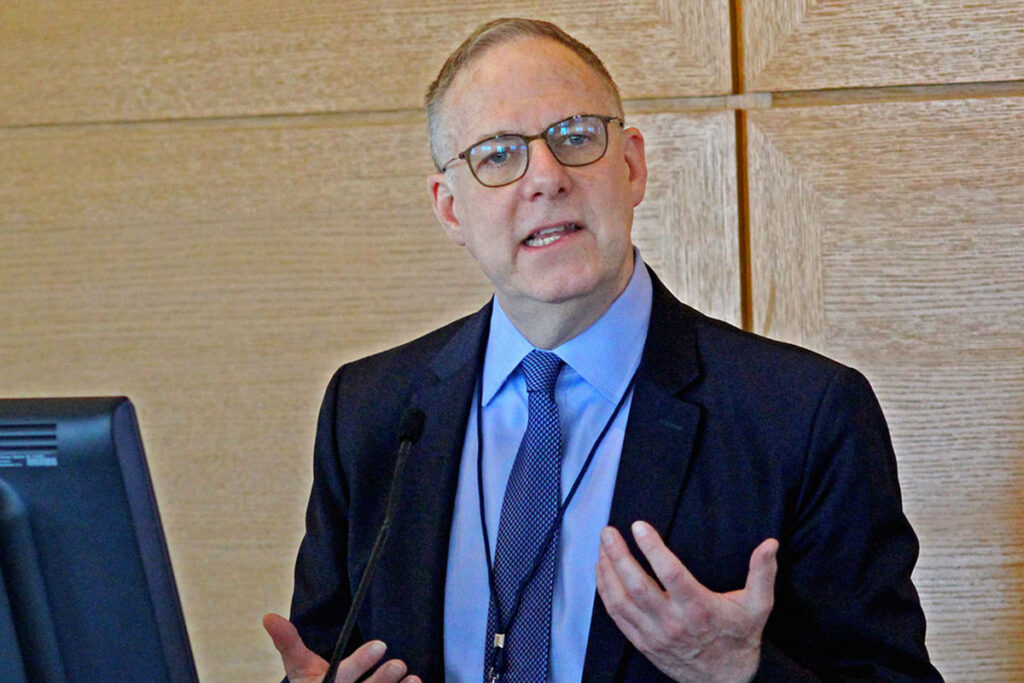

Former Congressman Patrick Kennedy (D-RI) (above) keynoted the event with remarks underscoring how stigma is the most challenging barrier faced by the scientists and policymakers seeking solutions for the national opioid epidemic. “The problem with our system today,” said Kennedy, “is that we think so microscopically in our approach because we all have very valid proposals and interventions but we lose the common narrative: Stigma. Stigma. Stigma. If this was an infectious disease we would have already thrown hundreds of billions of dollars at it. We would have had every federal, state, local and private stakeholder already knowing what they’re supposed to do and they’d be doing it.”
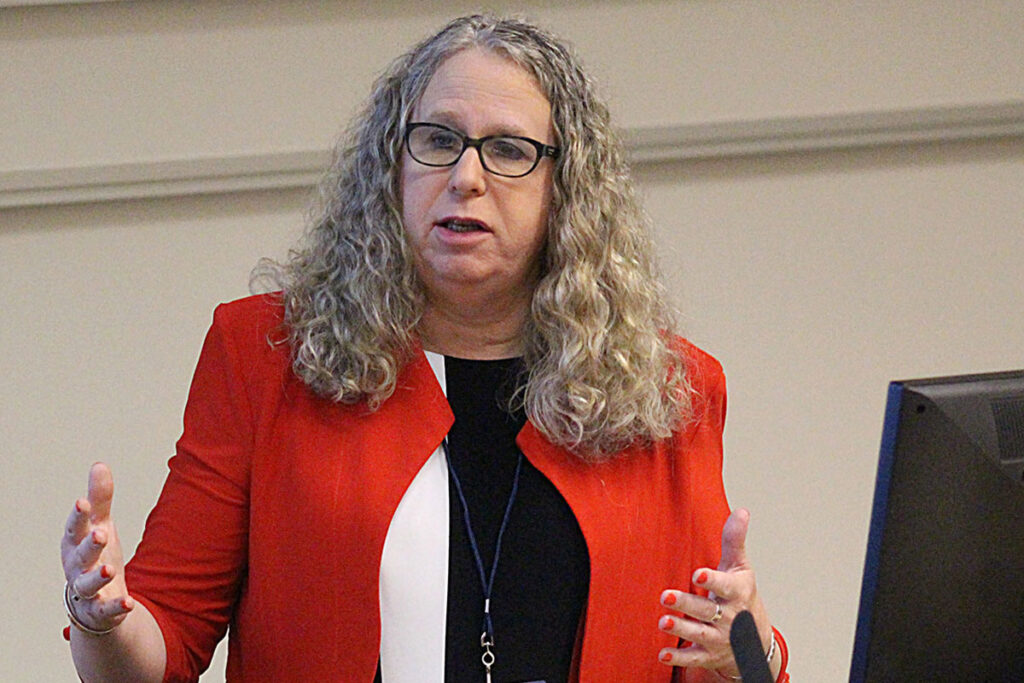
Speaking at the breakout session entitled, “Opioid Prescribing: Striking a Balance,” were (above) Rachel Levine, MD, Pennsylvania State Physician General and Professor of Pediatrics and Psychiatry at Penn State College of Medicine; and (bottom) Rita Noonan, PhD, Chief of the Health and Trauma Systems Branch in the Division of Unintentional Injury Prevention of the Centers for Disease Control and Prevention (CDC).
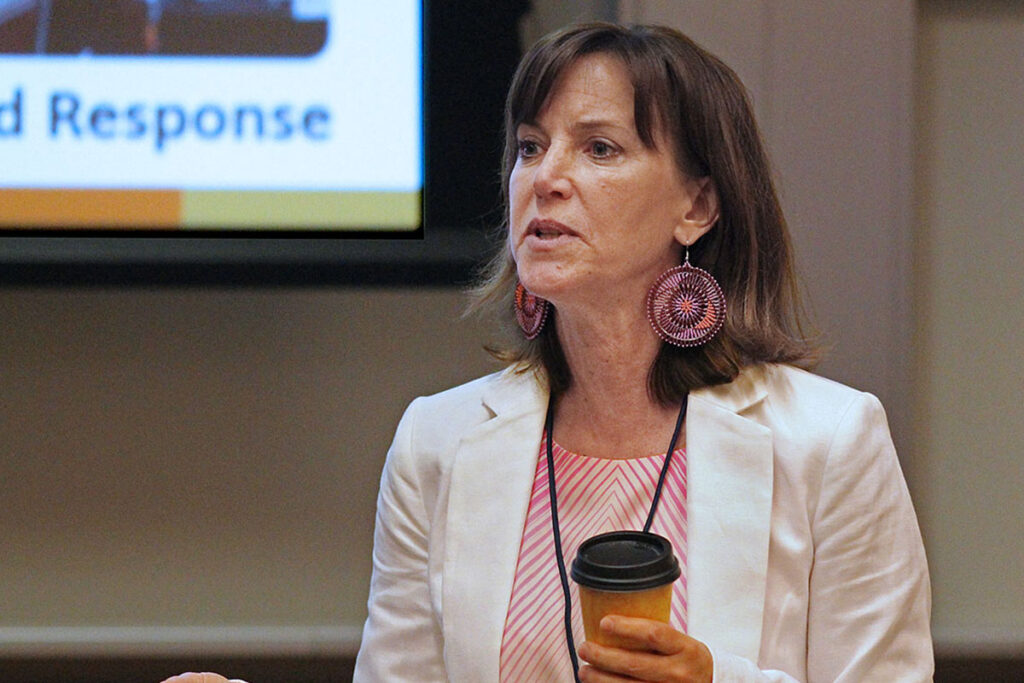
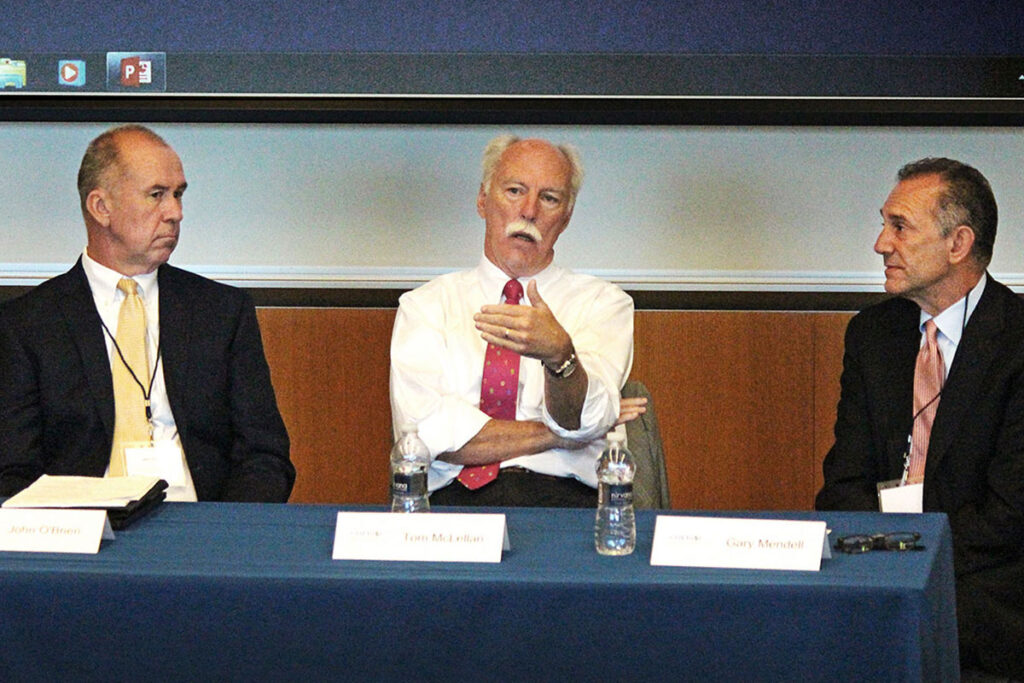
Another breakout session in Penn’s Huntsman Hall focused on the access, coverage, quality and costs of substance use treatment. Panelists were (l to r) John O’Brien, Senior Consultant at the Technical Assistance Collaborative (TAC) and a former Senior Advisor to the SAMHSA Administrator on Health Care Reform; TRI’s Tom McLellan, PhD; and Gary Mendell, MBA, Founder and CEO of the non-profit, addiction-focused Shatterproof organization.

Above, left, Harold Pollack (above), PhD, Co-Director of the Chicago Crime Lab and Professor of Social Service Administration at the University of Chicago was a panelist in the access, coverage, quality and costs session. Above, right, in a discussion during a break is Roland Lamb (bottom), BS, Deputy Commissioner of Strategic Planning and Innovation in the Philadelphia Department of Behavioral Health and Intellectual Disability Services.
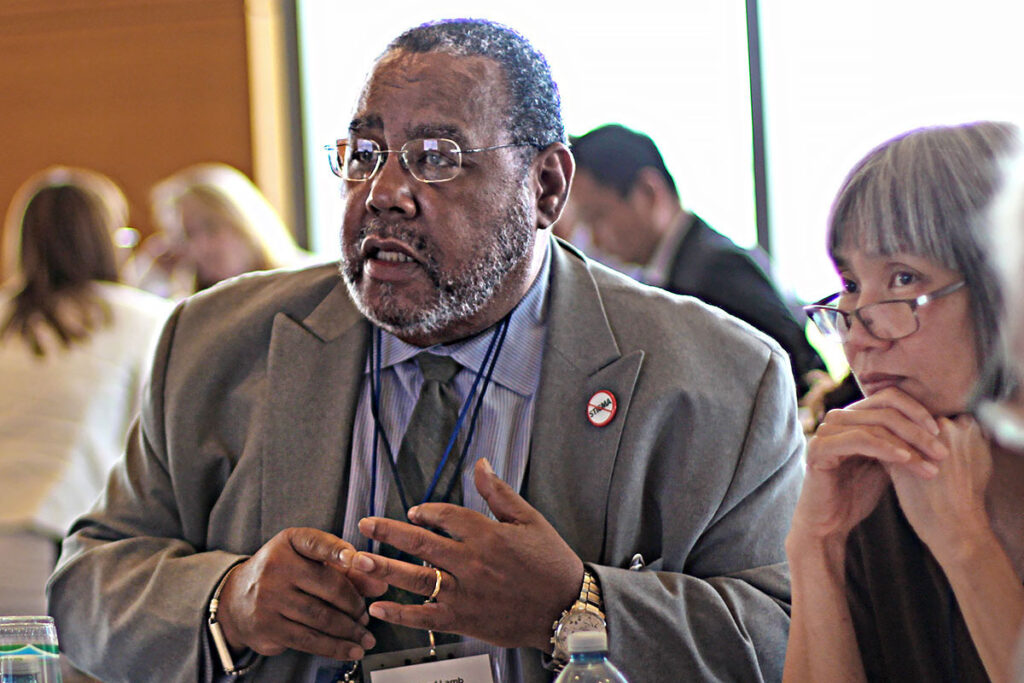
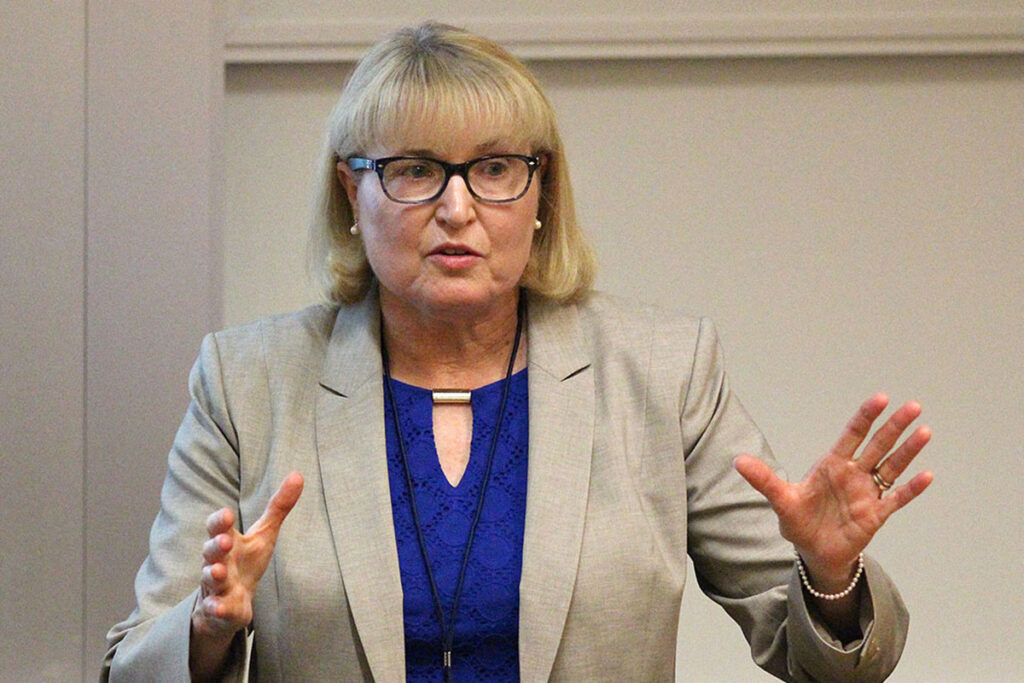
Speaking on striking a balance in opioid prescribing is Jean Bennett, PhD, (above) Region III Administrator for the Substance Abuse and Mental Health Services Administration (SAMHSA). Her region includes DC, Maryland, Pennsylvania, Virginia and West Virginia. Bottom, right, in discussions with Wharton School Professor of Health Care Management John Kimberly, PhD, is Devin Reaves, Clinical Outreach Coordinator at Life of Purpose. The organization operates on-campus outpatient substance use treatment centers for students at Florida Atlantic University in Boca Raton, Tennessee State University, and the University of North Texas.
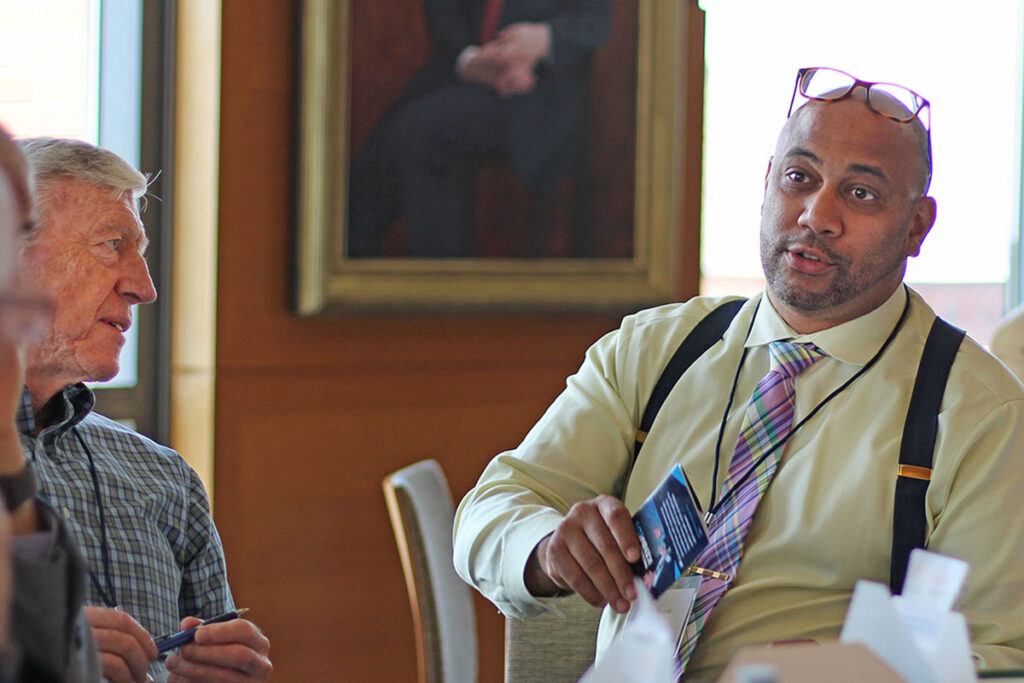
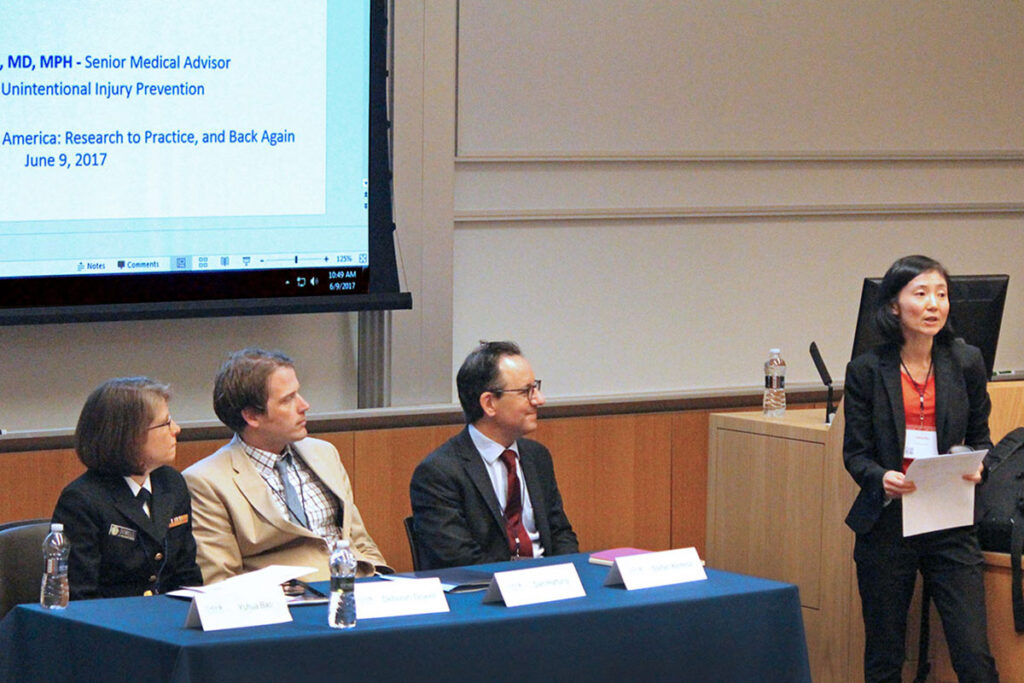
Above, right, Yuhua Bao, PhD, an Associate Professor of Health Care Policy at Weill Cornell Medical College addresses a breakout session. The other panelists with her are (l to r) Deborah Dowell, MD, MPH, Senior Medical Advisor at the CDC’s Division of Unintentional Injury Prevention; Dan Hartung, PharmD, MPH, Associate Professor in the Oregon State University College of Pharmacy; and Stefan Kertesz, MD, MSc, University of Alabama School of Medicine, Birmingham, Division of Preventive Medicine. Bottom left, on another panel were (l to r): Jeffrey Samet, MD, Chief of General Internal Medicine at Boston University School of Medicine; Hillary Kunins, MD, MPH, Assistant Commissioner of the New York City Department of Health and Mental Hygiene; Colleen LaBelle, MSN, RN-BC, CARN, Director of the Massachusetts State Technical Assistance Treatment Expansion Office-Based Opioid Treatment with Buprenorphine program; and Jack Stein, MSW, PhD, Director of the Office of Science Policy and Communications at the National Institute on Drug Abuse.
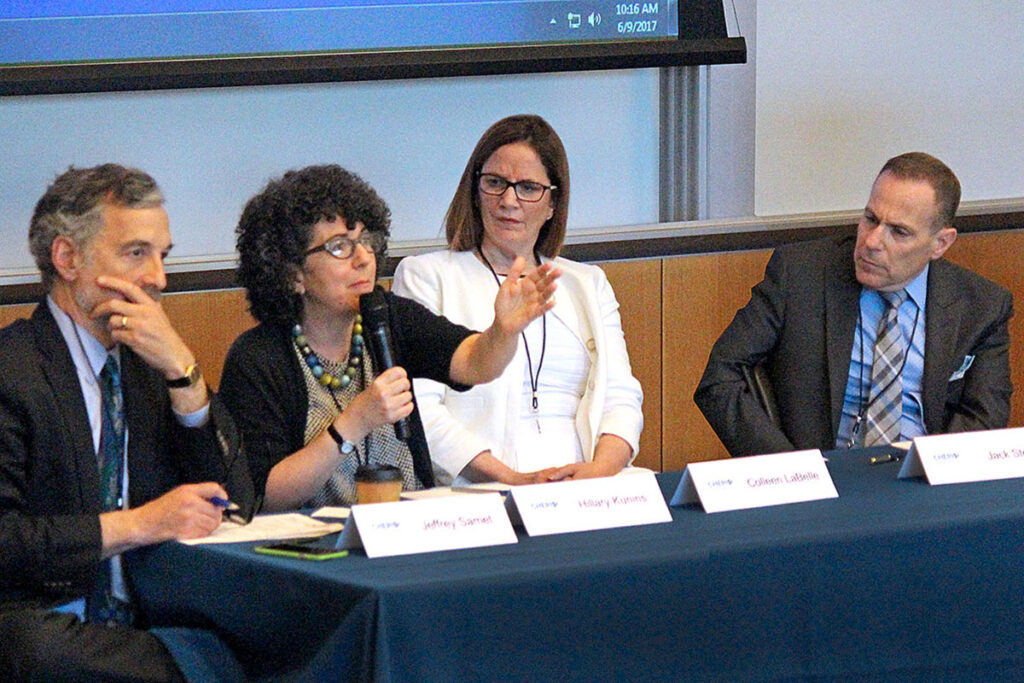

Listening as the CDC’s Deborah Dowell, MD, MPH, (bottom) speaks, is Sean Murphy, PhD, Assistant Professor of Research in Health Care Policy and Research, Weill Cornell Medicine.
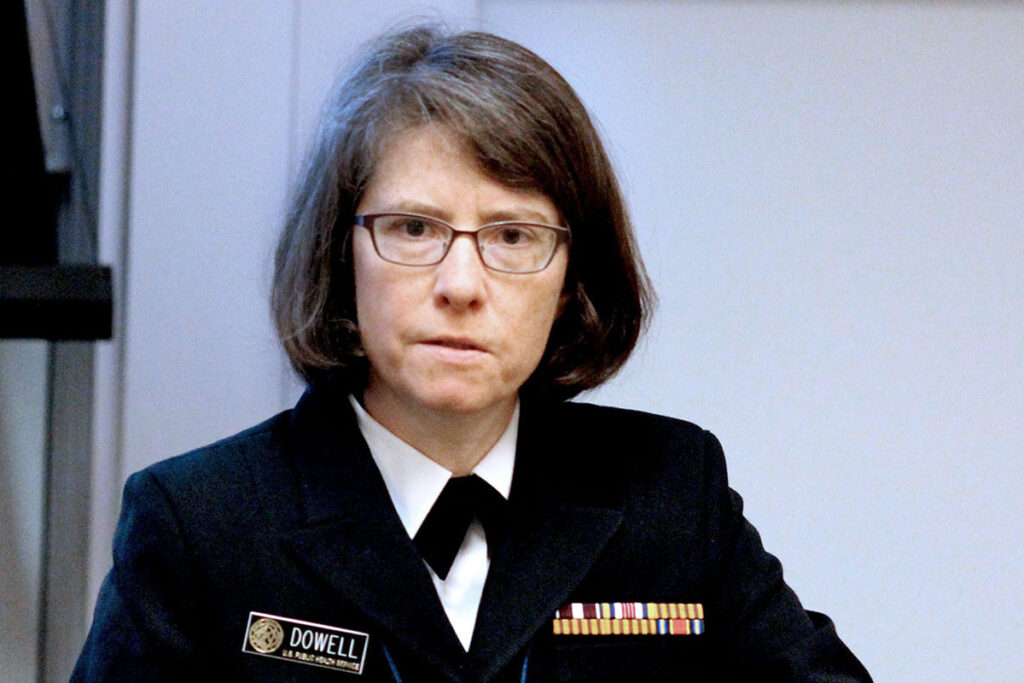
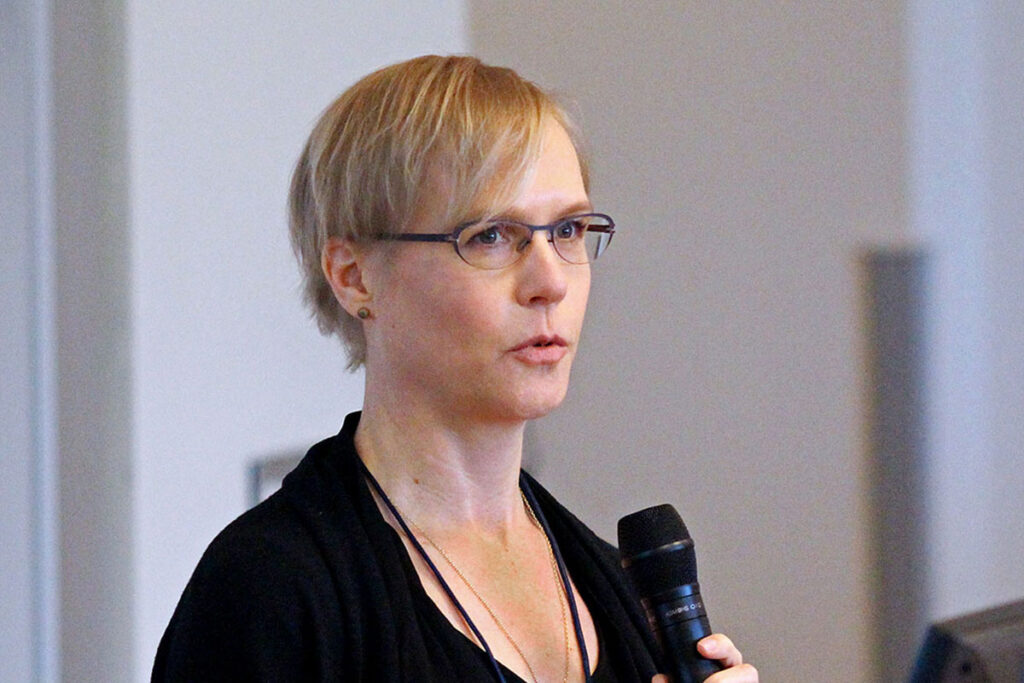
Addressing a breakout session on substance abuse diagnosis and treatment systems (above) is Jennifer McNeely, MD, Assistant Professor in the Tobacco, Alcohol and Drug Use Department at New York University’s School of Medicine. Bottom in lunch discussions are ( l to r) Kai Yeung, PharmD, PhD, of the Kaiser Permanente Washington Health Research Institute; M. Kit Delgado, MD, Assistant Professor of Emergency Medicine at the Perelman School of Medicine; Weill Cornell’s Sean Murphy; and Janet Weiner, PhD, MPH, LDI Associate Director for Health Policy.


In a lunch time discussion with Kaiser Permanente’s Kai Yeung (above, right) is Jeanmarie Perrone, MD, a Professor of Emergency Medicine and Director of the Division of Medical Toxicology at Penn’s Perelman School of Medicine. Bottom, right is Suet Lim, PhD, Director for Research and Evaluation at the Philadelphia Department of Behavioral Health & Intellectual Disabilities Services.


Leaders of the collaborative CHERISH effort flank keynote speaker Patrick Kennedy (l to r): Daniel Polsky, PhD, LDI Executive Director and Co-Director of the CHERISH Policy and Dissemination Core; Brandon Aden, MD, MPH, of Weill Cornell Medicine and Director of the CHERISH Pilot Grant and Training Core; Zachary Meisel, MD, MPH, of Penn Medicine and Director and Primary Investigator of the CHERISH Policy and Dissemination Core; Gary Mendell, MBA, Founder and CEO of Shatterproof.org; former Congressman Kennedy (D-RI); Bruce Schackman, PhD, MBA, Chief of the Division of Health Policy at Weill Cornell Medicine and Director of the CHERISH project; Kathryn McCollister, PhD, of the Public Health Sciences Department of the University of Miami and Co-Director of the CHERISH Methodology Core; Jeffrey Samet, MD, MPH, Chief of General Internal Medicine at the Boston University School of Medicine and Co-Director of the CHERISH HCV and HIV Core; and Ben Linas, MD, MPH, of the Boston School of Medicine Department of Infectious Diseases and Co-Director of the CHERISH HCV and HIV Core.